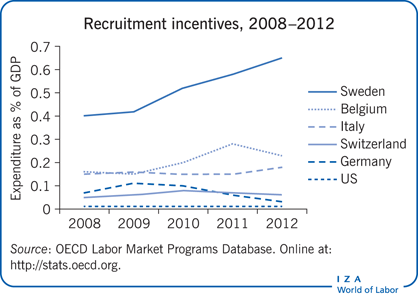Elevator pitch
Long-term unemployment can lead to skill attrition and have detrimental effects on future employment prospects, particularly following periods of economic crises when employment growth is slow and cannot accommodate high levels of unemployment. Addressing this problem requires the use of active labor market policies targeted at the unemployed. In this context, hiring subsidies can provide temporary incentives for firms to hire unemployed workers and, when sensibly targeted, are a very cost-effective and efficient means of reducing unemployment, during both periods of economic stability and recovery.

Key findings
Pros
Hiring subsidies have lower deadweight costs and other negative indirect effects than wage subsidies.
Hiring subsidies enable employers to screen workers and help the unemployed to regain their human capital.
Sensible targeting of the unemployed, especially the long-term unemployed, strengthens positive effects and their position in the labor market.
Targeted hiring subsidies can be cost-effective measures that yield higher employment probabilities in the future.
Cons
The impact of hiring subsidy programs varies depending on their targeting and design.
Targeting that is too loose may create high potential deadweight and displacement costs.
Targeting that is too tight may create stigmatization of workers and administrative and monitoring costs for the employer, and may therefore result in low employer take-up.
Evidence is still limited, especially on the longer-term effects on careers.